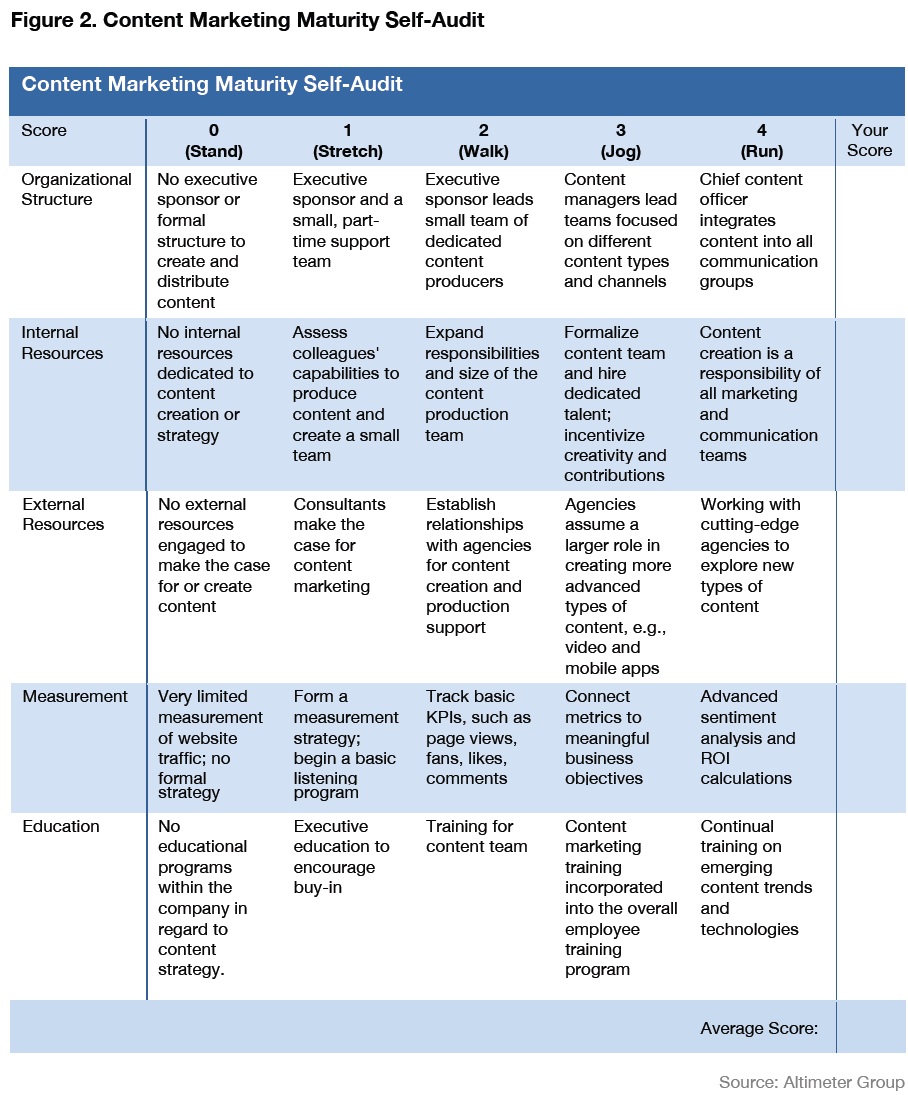A new content marketing study by Altimeter Group, an advisory firm that conducts independent research on new technologies, found that marketers plan to add more video, images and infographics to content marketing campaigns, as well as implement more mobile- and location-based initiatives. These changes come as marketers become more ambitious technologically and try to reduce reliance on advertising.
Marketers are increasingly recognizing the need to become storytellers to attract and keep their audiences engaged, the study by analyst Rebecca Lieb found. Altimeter, based in San Mateo, California, interviewed 56 individuals who are “actively” involved in content strategy development and work at agencies and consultancies, as well as at 38 companies, some of which are members of the American or Global Fortune 500.
“Marketers are beginning to recognize that while written content can be very effective, it’s not necessarily effective for every audience. It’s not necessarily an immersive experience,” Lieb said in this CMI podcast interview. “Video and mobile are flashier, newer, more attention getting. And I’m also seeing a rise in other forms of visual information, which in a way can be taken as quick informational hits.”
Brands as Media Companies
Emerging digital technologies, platforms and channels now allow any brand to function as its own media company. Marketers must think and function as publishers, producers and community managers as they develop strategies for presenting the content. Internally, content creators need to act like beat reporters, continuously traveling within various departments in search of stories and ideas.
Since a true content strategy must function in real time, its success depends on leveraging the expertise of individuals across an organization, not just within a single marketing department. The role of a content campaign is to entertain, beguile and inform an audience in order to “pull” them to the brand. Traditional advertising is known as a “push” strategy since it only sends out messages and doesn’t require an audience to engage in a communications relationship.
If an organization is interested in developing an integrated content marketing strategy, they must take four fundamental steps, Altimeter said:
- They must understand that content marketing is not free. Effective content initiatives require a significant investment in internal staff, as well as production and distribution resources.
- They must be willing to educate and train staff in new digital skill sets across an organization, not just within a marketing department.
- They must integrate content marketing with advertising so that the two strategies can fully express a brand’s story.
- They must balance the desire to try new techniques, such as video, with the use of fundamentals such as email newsletters and blogs.
Aim to Run
Altimeter developed a content marketing maturity self-audit form that companies can use to determine at what stage their program is. The research group said that in general, companies fall in five stages: Stand, Stretch, Walk, Jog and Run. The final stage, “Run,” is when a company’s content marketing is inspired and inspirational, and is characterized by content that can be monetized. This means that the organization has become a bona fide media company in its own right, with highly polished and innovative content that is either branded or related to the brand proposition. A company that is “running” can often sell or license its content based on standalone merit, and would have a division for the content with separate profit & loss responsibility.

Content marketing is “about breaking down silos within organizations, and between companies, their partners and their constituents, and finding the stories that need to be amplified and told – and doing so continually,” Lieb said in an interview. “Good content marketing just keeps on going forever and that is very difficult to sustain without strategy.”
“As the report suggests, and inline with what we are seeing from major brands like Coca-Cola, more senior level marketers are making the push toward content marketing,” says Joe Pulizzi, founder of the Content Marketing Institute. “But, since we are battling decades of mass media structure and culture, most brands are at the very beginning stages of content marketing implementation. If content marketing were a baseball game, we are just getting out of the dugout for the first inning. That said, the report shows promise and marketing executives are heading in the right direction.”
According to Altimeter, Red Bull, an Austria-based energy drink company, is an example of a firm that’s achieved this level of content maturity. Red Bull runs an e-commerce website, RedBullContentPool.com, that allows users to license clips from its extensive video library. The company also allows users to download photos for editorial purposes, owns a record label, and publishes a print magazine. This content distribution model allows Red Bull to generate revenue and impact global culture, in addition to supporting its energy drink brand.